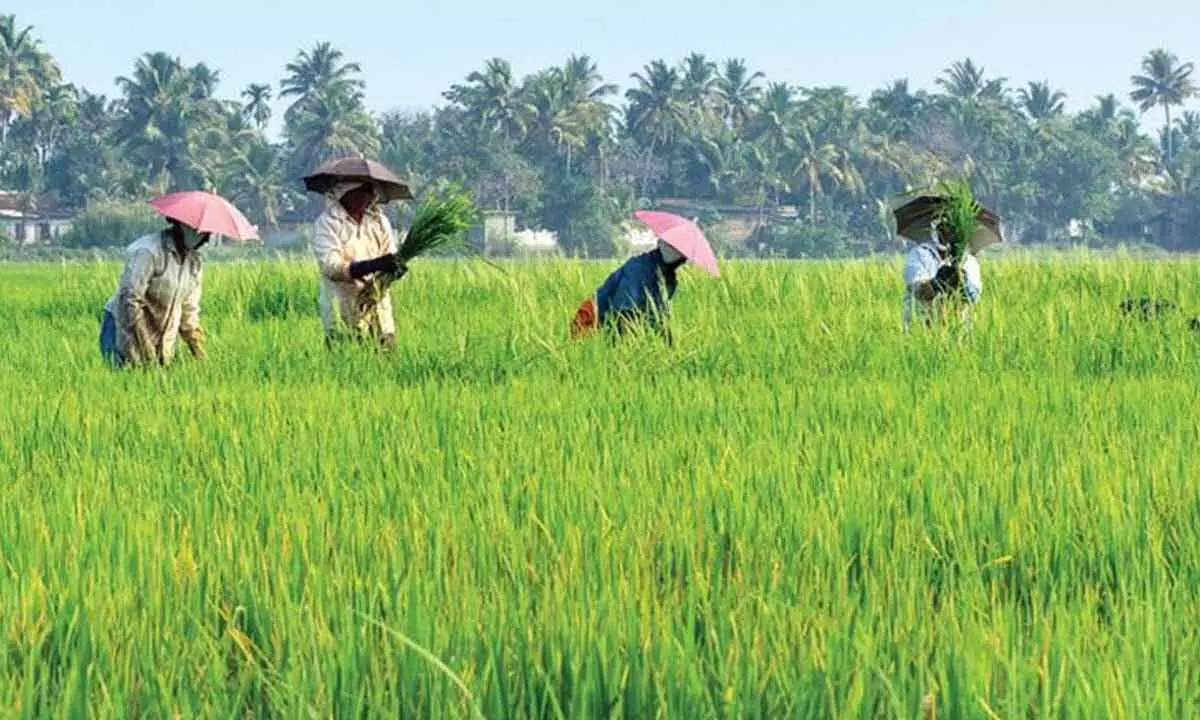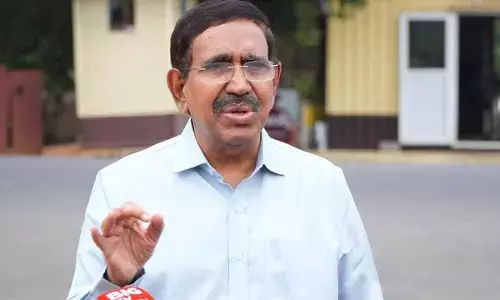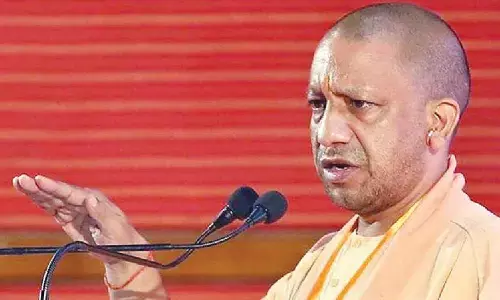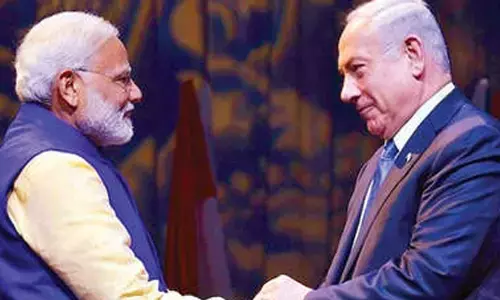Why MSP fails to better the lot of farmers

Representational image
The NITI Aayog (erstwhile Planning Commission) has conducted a study entitled, 'Efficacy of Minimum Support Prices on farmers,' in 2016 and found that the Minimum Support Price (MSP) declared by the government has encouraged 78% of the farmers covered under the study to adopt improved methods of farming such as high-yielding varieties of seeds, organic manure, chemical fertilizers, pesticides and better methods of harvesting etc.
The NITI Aayog (erstwhile Planning Commission) has conducted a study entitled, 'Efficacy of Minimum Support Prices on farmers,' in 2016 and found that the Minimum Support Price (MSP) declared by the government has encouraged 78% of the farmers covered under the study to adopt improved methods of farming such as high-yielding varieties of seeds, organic manure, chemical fertilizers, pesticides and better methods of harvesting etc.
The government extends price support for paddy and wheat through the Food Corporation of India (FCI) and State agencies. Under this policy, whatever food grains are offered by farmers within the stipulated period and conforming to the specifications prescribed by the government are purchased at MSP by the State agencies including FCI for the central pool. Additionally, oilseeds, pulses and copra of fair average quality are procured from the registered farmers under price support scheme of the umbrella scheme of Pradhan Mantri Annadata Aay Sanrakshan Abhiyan.
The Union Budget for 2018-19 had announced the pre-determined principle to keep MSP at levels of one-and-a-half times the cost of production. Accordingly, the government has increased the MSPs for all mandated Kharif (including wheat), Rabi and other commercial crops with a return of at least 50 per cent over the all India weighted average cost of production from the agricultural year 2018-19. However, as against the official announcement of MSP for 23 crops, only two, rice and wheat, are procured as these are distributed under the NFSA (National Food Security Act). For the rest, it is mostly ad hoc and insignificant. The Shanta Kumar Committee, in its report in 2015, stated that only 6% of the MSP could be received by the farmers, which directly means that 94% of the farmers in the country are deprived of the benefits of MSP.
The MSP regime has no relation to prices in the domestic market. Its sole raison d'être is to fulfil the requirements of NFSA making it effectively a procurement price rather than an MSP. Skewed MSP-dominated system of rice and wheat leads to overproduction of these crops and discourages farmers to grow other crops and horticulture products, which has higher demand and subsequently could lead to increase in farmers' income. The procurement system is also dependent on middlemen, commission agents and APMC officials, which smaller farmers find difficult to get access to.
It is true that the MSP requires the government to intervene whenever market prices fall below a predefined level, primarily in case of excess production and oversupply or a price collapse due to international factors. It can also be an incentive price for many of the crops which are desirable for nutritional security such as coarse cereals, and also for pulses and edible oils for which India is dependent on imports. Wisdom lies in investing more in animal husbandry (including fisheries) and fruits and vegetables, which are more nutritious. The best way to invest is to incentivise the private sector to build efficient value chains based on a cluster approach.
The government must come up with a suitable transition to agricultural pricing policy, whereby partial agricultural pricing should be state-supported and partially market-driven. One way to do this could be a deficiency payments scheme along the lines of the Bhavantar Bhugtan Yojana (BBY) initiated by Madhya Pradesh. A more scientific way is needed to evolve such policies. Politics won't help the nation.










